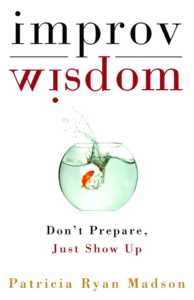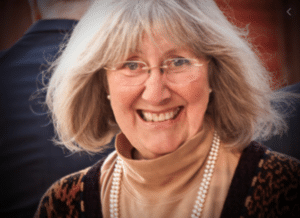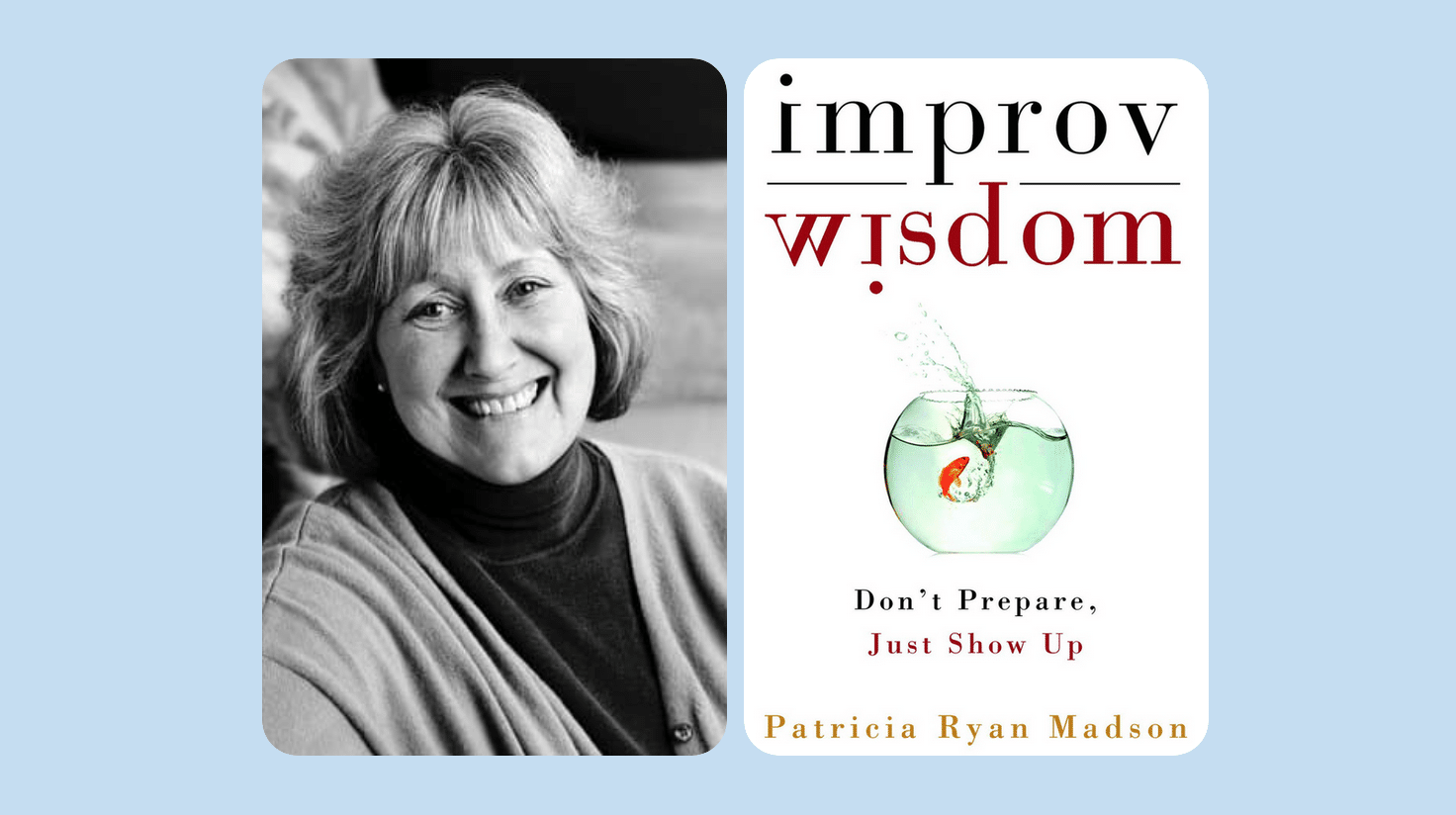When speaking about improv, Tina Fey once said, “Just say yes and you’ll figure it out afterwards.” But this advice may extend beyond the stage, especially if you ask Patricia Ryan Madson. WellWell recently spoke to the author of Improv Wisdom: Don’t Prepare, Just Show Up on how the teachings of improv can be beneficial in everyday life and even help ease unique challenges brought about by Covid-19.
When people think of improv, they generally think comedy. However, it’s much more than that. What is improv beyond comedy?
I think that it’s natural that that word gets equated with comedy because the word improv seems to also refer to improv performance. But it is more than that. It’s a mindset that allows us to look at reality and look at the unexpected with a kind of new framework. In fact, my own experience teaching improv at Stanford in the drama department largely was to help young actors be better at what they do and be able to improvise in the theater. But what I discovered was people kept coming back after the class and saying what they were learning had real-life applications. Some would find themselves generally being more helpful and agreeable, others would note they were becoming better partners by listening better.
How does improv promote these changes?
In order to create an improv scene on stage, there are certain things that you absolutely have to do. You can’t work from a basis of conflict. You have to work from agreement. You also have to really listen well because you don’t know what the circumstances, you’re creating it as you go.
Improv Wisdom features 13 maxims of improvisational theater to apply to real-life challenges. The subtitle of the book is “Don’t Prepare, Just Show Up”, which are the second and third maxims, respectively. Why did these over the eleven others make the cover?
To be clear, I really don’t mean don’t prepare. Because I don’t know how it’s possible not to. Minds try to prepare, we worry, we try to figure things out. What I really mean is go on and prepare. Do whatever you think you might need to do. Write that outline or write that speech out or whatever preparations. But, when it comes to the moment where you go to the interview or you give the talk, set your preparation aside and allow yourself to speak naturally and to use all of that preparation in the present moment.
What’s the benefit of that?
Most of us prepare so we can execute. My suggestion is while preparing, allow that not to be the gospel because we’ve all seen speakers who are reading their speech and there’s a whole different feeling to that than delivering some useful ideas. Speech patterns are different, and we listen differently when we think that the speaker is talking to us rather than reciting. It also allows the speaker to respond to what’s happening in the moment. Preparation is good but don’t stop there. Be prepared to improvise.
There’s a passage early in the book which you note following 9/11, people had become more cautious and less inclined to take risks. Safety become the greatest good, travel have fallen off drastically and everyone had become a lot more comfortable being stuck at home. Fifteen years later, this could easily be applied to Covid. Have the skills of improv helped you cope over the last year? How can it help others?
Absolutely, I think there are a couple simple aspects that have been particularly helpful to me. First of all, is the skill of attention. Improvisers are taught to pay attention to what’s going on. We can’t close ourselves off to the reality that we’re in, or else the scene wouldn’t work. We couldn’t deny the life changes Covid brought us, including what it means to be at home and do things differently. Second, is acceptance. Improvisers don’t fight reality, we say yes and. When accepting tough circumstances, it’s easier to combat them and find solutions or healthier means of coping. Improv teaches a very collective, collaborative, and cooperative type of mindset.
The 10th Maxim is “Make Mistakes Please.” More so, a theme throughout the book and improv in general is not only is it okay to make mistakes, it’s actually beneficial to do so. How does improv help us learn from mistakes?
Well, I think it’s this mindset that says, “try stuff”. We often don’t try things for fear of failure. But improv says, “Hey, you’re never going to do anything if you have to have assurance in advance of its positive outcomes”. When I say make mistakes please, I really don’t mean go for the mistakes. What I mean is do things that maybe you’re out of your comfort zone. And if you keep trying stuff out of your comfort zone, we’re all going to grow and then if something untoward happens, some may call it a mistake, but we improvisers try to capitalize on that and use it.
Improv Wisdom was published 15 plus years ago. If you were writing it today, is there anything you’d add or change?
Well, I don’t think there’s anything I would change but I think I would emphasize the four A’s. Attention, acceptance, appreciation and action. Paying attention to life, listening better and working with all of the distractions that come our way to try to choose our attention. I would focus on acceptance because there’s a lot that is difficult in today’s world, but we need to be open. With appreciation and action, we put ourselves into the picture of life and become proactive about the things that are important to us. Those are pillars of improv that can really help every day.
 About Patricia Ryan Madson
About Patricia Ryan Madson
Patricia Ryan Madson is a professor emerita at Stanford University, where she began teaching in 1977. She founded the Stanford Improvisors in 1991, and as head of the undergraduate acting program, she won the university’s highest teaching prize, the Lloyd W. Dinkelspiel Award for outstanding contribution to undergraduate education. She also teaches at the Esalen Institute and for Stanford’s Continuing Studies. Her book, Improv Wisdom: Don’t Prepare, Just Show Up, was published in 2005 and is now available in nine languages.
Learn More
www.improvwisdom.com
Twitter @patryanmadson













